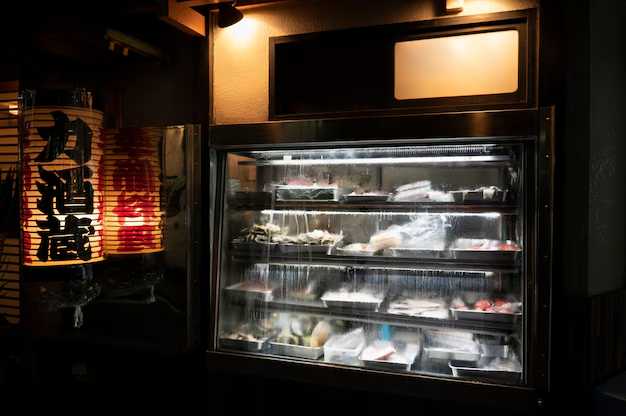How Long Does Baby Formula Last in the Refrigerator? A Comprehensive Guide for Parents
Feeding your baby can be a rewarding experience, but it comes with various questions, especially concerning food safety and storage. With formula feeding, one common question parents often ask is: How long is a formula bottle good in the refrigerator? Navigating the world of baby formula can feel complex, and understanding the best practices for storage and handling is crucial to ensure your baby is consuming safe and nutritious meals.
🍼 Understanding Formula Types and Their Shelf Life
Ready-to-Feed Formula
Ready-to-Feed (RTF) formulas are the most convenient and come pre-mixed in liquid form. They are ideal for on-the-go feeding as they do not require any mixing or precise measurements. However, they do come with specific storage instructions:
- Unopened containers have a long shelf life, typically several months, when stored at room temperature in a cool, dry place.
- Once opened, the leftovers should be stored in the refrigerator and used within 48 hours.
Powdered Formula
The most commonly used type of baby formula, powdered formula, is a more economical choice and requires mixing with water. Its storage guidelines are:
- Unopened powder containers can last several months when stored in a cool, dry place.
- Once prepared, a bottle of powdered formula can be kept in the refrigerator for up to 24 hours before it's deemed unfit for consumption.
Concentrated Liquid Formula
This type of formula requires mixing with water just like the powdered version but comes in a liquid form which can make preparation quicker:
- Unopened cans generally have a stable shelf life for several months under proper conditions.
- After mixing, the formula must be refrigerated and used within 48 hours, similar to the Ready-to-Feed type.
🕒 The Science Behind Formula Storage
Why Timing Matters
We've emphasized the limited time baby formula can be stored once opened and refrigerated. But why is timing crucial? The primary reason is bacterial growth. Even in the refrigerator, bacteria can multiply, potentially leading to spoilage and health risks for your baby.
Effects of Refrigeration on Formula
Refrigeration slows bacterial growth rather than eliminating it. Therefore, the key takeaway is to adhere strictly to recommended storage times to prevent any chances of formula making your baby sick.
🗒️ Proper Storage Practices
Preparing Formula Safely
- Always wash hands and clean preparation surfaces before handling formula.
- Use clean bottles and nipples, sterilizing them if necessary.
- Follow the mixing instructions precisely to maintain the formula’s nutritional integrity.
Storing Formula Correctly
- Use airtight containers if transferring formula from its original packaging, especially for powdered formula.
- Place formula bottles in the refrigerator immediately after preparation, avoiding the door where temperatures fluctuate.
- Label bottles with the time of preparation to track usage within safe time frames.
Discarding Old Formula
- Do not use formula past its "use by" date.
- Discard any formula left out at room temperature for more than 2 hours, as bacteria thrive quickly at these temperatures.
- After feeding, discard any leftover formula not consumed by your baby to avoid bacterial contamination.
🏷️ Summary Tips for Parents
To help parents keep track and ensure safe formula use, here’s a handy reference guide:
- 📅 Check Expiry: Always check the expiration date before using formula.
- 🕒 Use it or Lose it:
- Ready-to-Feed: 48 hours in the fridge
- Powdered mixed: 24 hours in the fridge
- Concentrated Liquid mixed: 48 hours in the fridge
- 🌡️ Avoid Temperature Fluctuations: Store bottles at the back of the refrigerator, not on the door.
- 🚮 When in Doubt, Throw it Out: If you’re unsure about the formula’s freshness, it’s safer to dispose of it.
Breaking Down Related Concerns
Signs of Spoiled Formula
Knowing when formula has gone bad can be tricky but here are common indicators:
- Off-smell or sour odor
- Changes in color or consistency
- Clumping in powdered versions or separation in liquid forms
If you notice any of these signs, it's best to discard the formula immediately.
Risks of Using Old Formula
Feeding your baby formula beyond its recommended timeframe can lead to digestive upset and increase the risk of bacterial infections. Always prioritize fresh feeds to ensure your baby's well-being.
Understanding Alternatives
Safe Water Use for Mixed Formulas
When mixing powdered or liquid-concentrate formulas, always use clean, safe water. Consider boiling water and allowing it to cool to the recommended temperature before mixing, especially if the water supply is questionable.
Homemade Formula: Not Recommended
While some parents consider homemade formula to avoid additives and preservatives, it's generally advised against due to the challenges in meeting nutritional needs and ensuring safety standards.
🧩 Wrap-Up Insight
Feeding your baby is both a joyful journey and a significant responsibility. By understanding how long formula remains good in the refrigerator and adhering to recommended storage practices, you'll be better equipped to provide your baby with safe and nutritious feeds. Remember, maintaining hygiene and proper timing can prevent potential health risks, ensuring feeding times remain stress-free and nurturing for both you and your little one. Every parent learns at their own pace, so keep a calm and informed approach as you navigate these early years.
With these practical insights, you'll manage formula feeding more confidently, keeping your baby healthy and happy. 🌟

